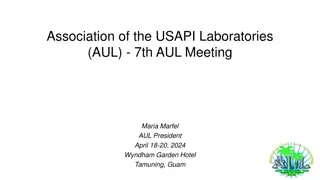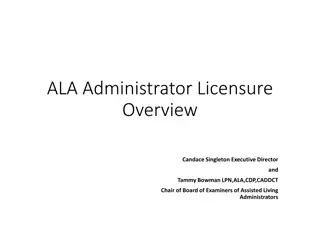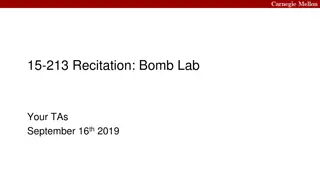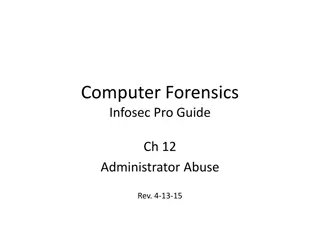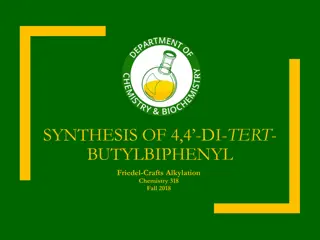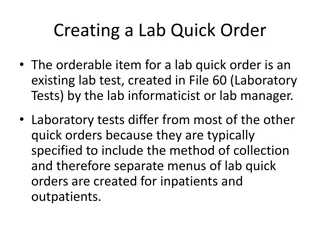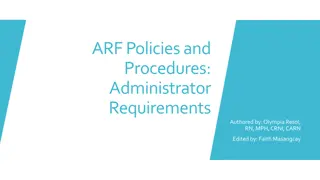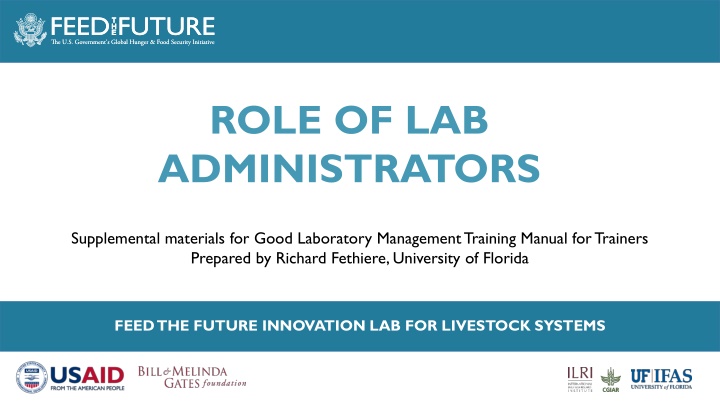
Lab Administrators: Key Roles and Responsibilities for Efficient Operations
Learn about the role of lab administrators in ensuring the efficiency and reliability of laboratory operations, including determining services offered, managing equipment, and hiring personnel. Discover how a lab's performance can impact an institution's reputation positively or negatively.
Download Presentation

Please find below an Image/Link to download the presentation.
The content on the website is provided AS IS for your information and personal use only. It may not be sold, licensed, or shared on other websites without obtaining consent from the author. If you encounter any issues during the download, it is possible that the publisher has removed the file from their server.
You are allowed to download the files provided on this website for personal or commercial use, subject to the condition that they are used lawfully. All files are the property of their respective owners.
The content on the website is provided AS IS for your information and personal use only. It may not be sold, licensed, or shared on other websites without obtaining consent from the author.
E N D
Presentation Transcript
ROLE OF LAB ADMINISTRATORS Supplemental materials for Good Laboratory Management Training Manual for Trainers Prepared by Richard Fethiere, University of Florida FEED THE FUTURE INNOVATION LAB FOR LIVESTOCK SYSTEMS Photo Credit Goes Here
Lab mission Background Role of lab administrators Discussion items
LAB MISSION From an administrative approach, a lab is created to support a well-defined objective The specific objectives are defined in the lab s mission statement Every activity is oriented towards the lab s mission
The lab admins is key for the following processes Determining the services offered ROLE OF LAB ADMINS Determining the users and customers that access the lab s services Fundraising and setting service fees Making sure to provide the lab with the required equipment, chemicals, and instruments needed
ROLE OF LAB ADMINISTRATORS (CONT) Make sure that the lab provides accurate, reliable, and repeatable results that can be trusted by the scientific community Make sure that all the equipment is in working order and up to date in maintenance cycles Hire adequate, capable, knowledgeable, and responsible personnel to fulfill the lab s mission
A LAB CAN AFFECT THE REPUTATION OF AN INSTITUTION When a lab performs a good job, the word gets around. When it doesn t it becomes viral very quickly Bad lab practices = Bad reputation for the organization Every time a publication is accepted with the lab s data, the reputation improves BE CAREFUL with details
DISCUSSION ITEMS What services does the lab provide? Why is the lab relevant for research on the field? Why is it important that the lab functions efficiently (equipment, personnel, supplies, reagents, etc.)? What other examples can you think of a lab promoting or demoting an institution s reputation?
Consult the Good Laboratory Management Training Manual for Trainers https://livestocklab.ifas.ufl.edu/resources/glp/ Direct link to manual in PDF: https://livestocklab.ifas.ufl.edu/media/livestocklabifasufledu/pdf-/MANUAL- Fethiere_UF_Good-lab-management-practices_2022.pdf
Feed the Future Innovation Lab for Livestock Systems https://livestocklab.ifas.ufl.edu/ https://livestocklab.ifas.ufl.edu/ (Subscribe to newsletter) livestock-lab@ufl.edu livestock-lab@ufl.edu Disclaimer This work was funded by the United States Agency for International Development (USAID) Bureau for Food Security under Agreement #AID-OAA-L-15-00003 as part of Feed the Future Innovation Lab for Livestock Systems, and by the Bill & Melinda Gates Foundation OPP#1175487. Any opinions, findings, conclusions, or recommendations expressed here are those of the authors alone.






